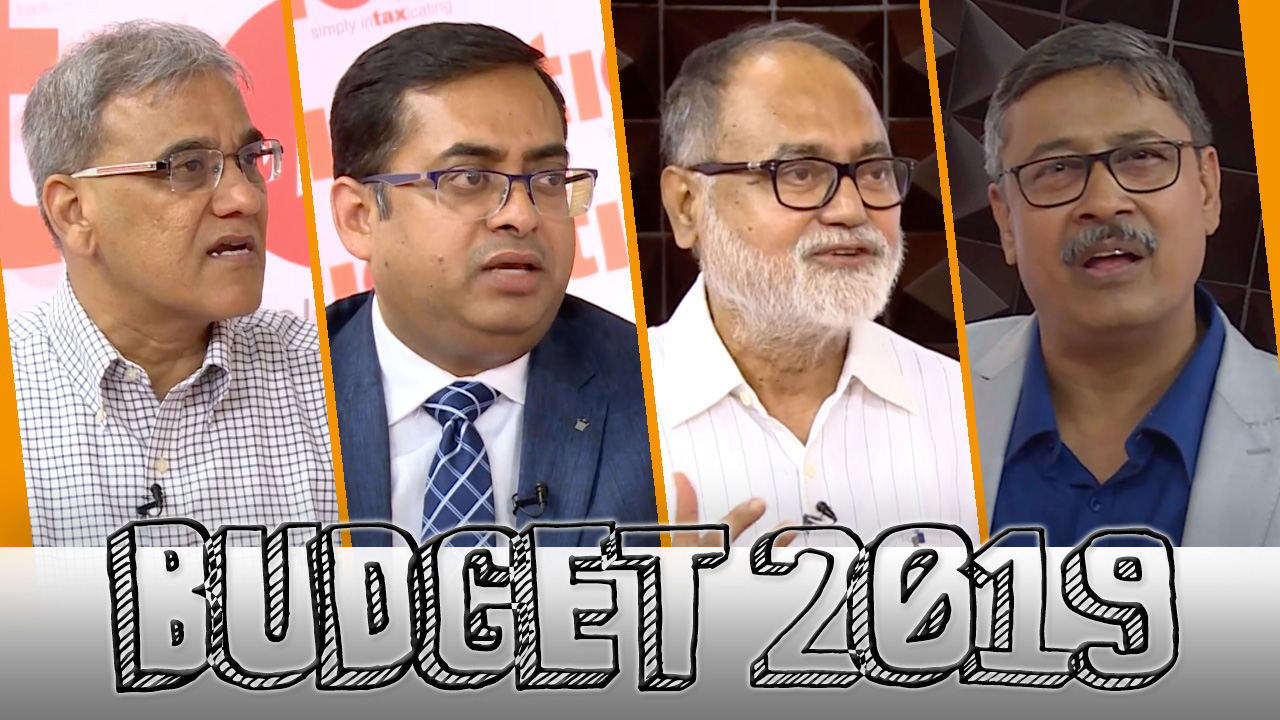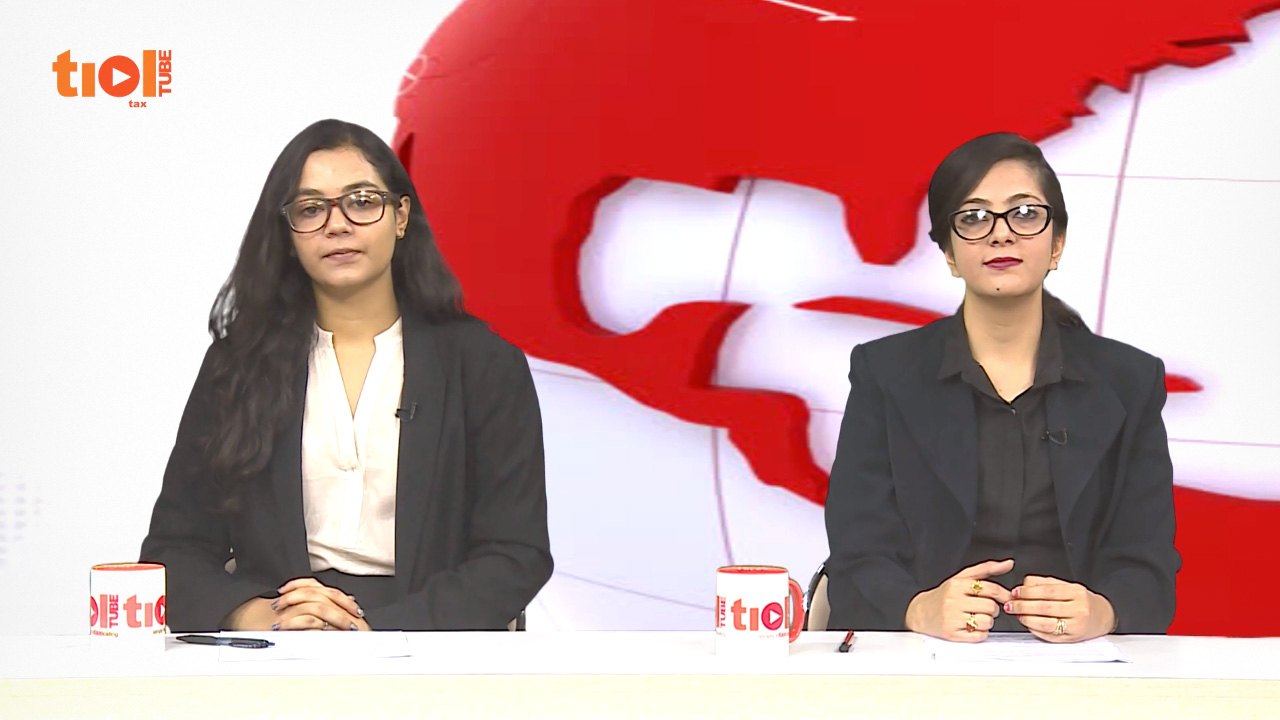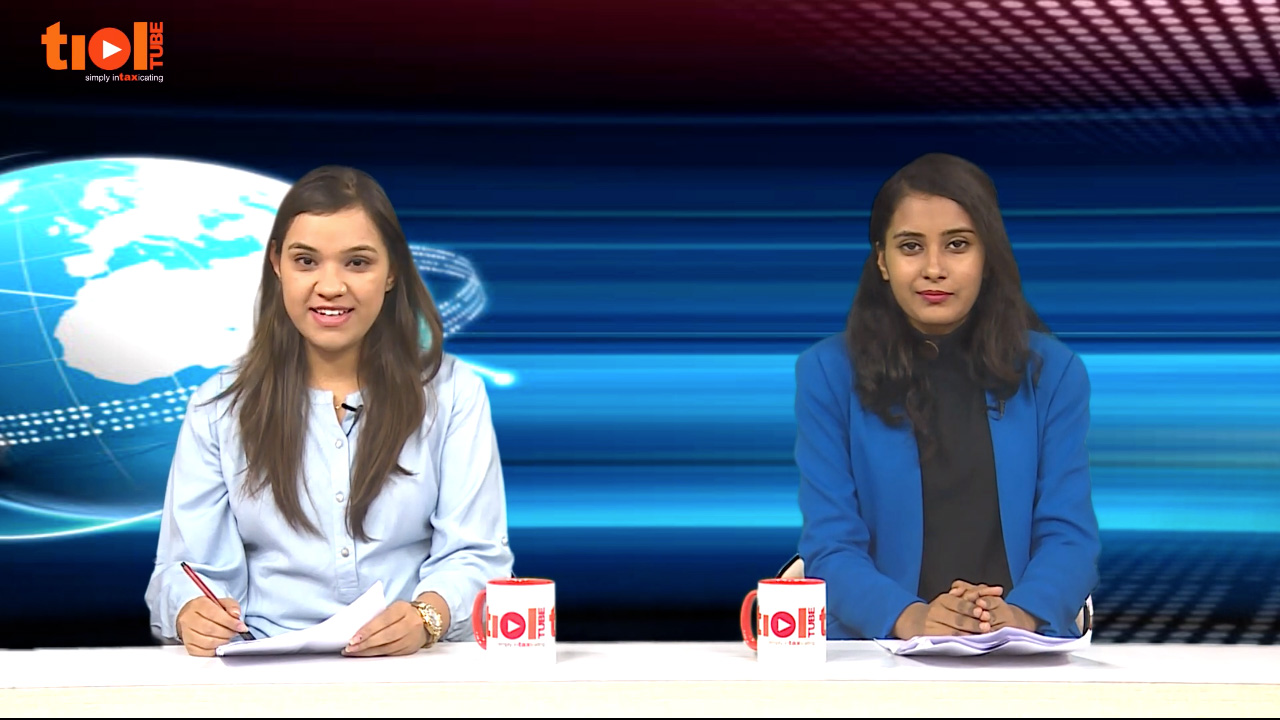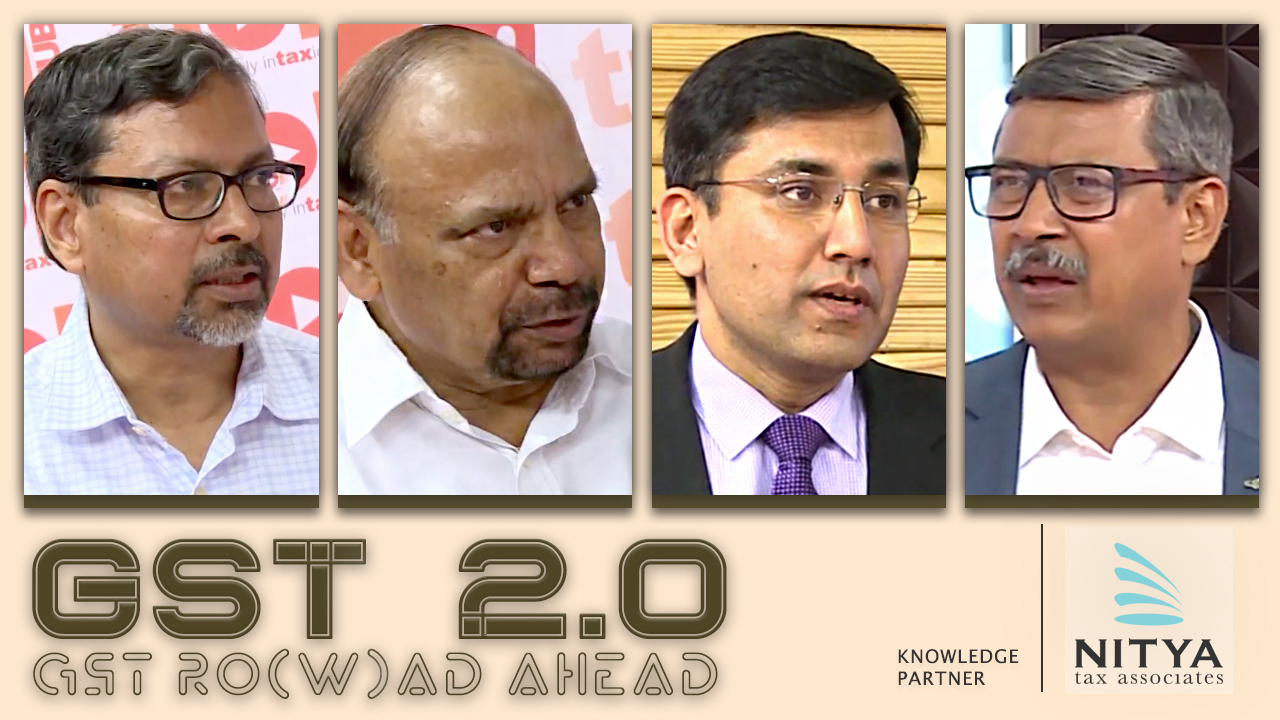|
SERVICE TAX
2019-TIOL-1775-CESTAT-KOL
Ferro Scrap Nigam Ltd Vs CCE & ST
ST - Appellant entered into an agreement with M/s Steel Authority of India, Bokaro Steel Plant (BSP) to undertake the job of processing and recovery of iron and steel scrap supplied to it by the latter - processes were required to carried out in the premises of BSP and the iron and steel scrap so recovered were to be returned to BSL for manufacture of excisable goods therefrom - Department was of the view that for the consideration received from BSL, the appellant was required to pay service tax under the category of "Business Auxiliary Service" - SCN issued and demand of service tax confirmed along with penalty and interest - appeal to CESTAT.
Held: For the period prior to 16.06.2005, service tax was required to be paid for the services of "production of goods for or on behalf of the client" - In this connection, identical issue in respect of the appellant's other unit which carried the activity at M/s SAIL (Bhilai Steel Plant) came before the Delhi Bench of the Tribunal and it was held - 2014-TIOL-418-CESTAT-DEL that there was no liability for payment of service tax upto 16.06.2005 on such activity, therefore, demand for service tax for the period upto 15.06.2005 is set aside - for the period post 16.06.2005, the benefit of notification 8/2005-ST has been denied by taking the view that such scrap cannot be covered by expression of "raw materials" or "semifinished goods" - Bench is of the opinion that such a view is uncalled for since scrap is nothing, but a raw material for use in melting and further manufacture within the iron and steel plant - second limb of the notification also stands fulfilled in view of the certificate dated 4th September, 2009, issued by M/s SAIL, Bokaro Steel Plant, wherein the Deputy General Manager (F & A) has certified that the scrap, after processing and recovery, has been returned back and the same has been used for the manufacture of dutiable steel products - Giving due consideration to such end-use Certificate submitted by the Public Sector Undertaking, Bench is of the view that the appellant will be entitled to the benefit of Notification No.8/2005 dated 01.03.2005 - impugned order set aside and appeal allowed: CESTAT [para 8, 10, 11]
- Appeal allowed : KOLKATA CESTAT
2019-TIOL-1774-CESTAT-AHM
Enviro Control Associates India Pvt Ltd Vs CCE & ST
ST - Issue is whether the service as claimed by the appellant and provided to government authorities in respect of erection, commissioning and installation of water treatment plant is liable to service tax or otherwise - adjudicating authority has confirmed the demand on the ground that no evidence was produced as to whether the service provided by the appellant is of commercial nature or otherwise - appellant contending that the work contract was submitted to the adjudicating authority which shows that the service of construction is not for commercial purpose but for public amenities, therefore, the observation of the adjudicating authority is apparently incorrect.
Held: It appears that the original authority has not considered the contracted submitted properly - appellant has also produced certain documents such as, CA Certificate, payment of work contract tax, etc. - entire matter needs to be reconsidered, hence, impugned order set aside and matter remanded to the original authority for fresh decision: CESTAT [para 4]
- Matter remanded : AHMEDABAD CESTAT
CENTRAL EXCISE
Godavari Fertilizers And Chemicals Ltd Vs CC, CE & ST
CX - Duty paid fertilizers were cleared prior to October 1999 and they were received back as being rejected by the field formations and it was not commercially viable to keep such large quantity outside - In November 2004 appellant cleared the pesticides which were received back without payment of duty under the bonafide impression that they are not dutiable as they were cleared in the 1st instance on payment of duty - Subsequently, an audit took place in the appellant's premises and accepting the audit party's findings, that the duty liability needs to be discharged, appellant discharged the entire duty liability with interest under protest on 30th September 2005 - By a letter dated 07.02.2007 they clarified to the department that pesticides life had expired, had become putrid and foul smelling and, therefore, were disposed of since the unit was not functioning and these facts could not be brought to the notice of the Revenue earlier - that after lapse of two and half years, a show-cause notice was issued for demand of the duty along with interest and also for imposition of penalty by invoking extended period of limitation and, therefore, the demand is time barred.
Held: Allegation of suppression cannot stand the scrutiny of law, as appellant has been stating from the beginning that the goods were cleared prior to October 1999 and received back during the period October 1999 to November 2004 and subsequently cleared in November 2004 without payment of duty - appellant has made out a case that they had no malafide intention in removal of the goods in November 2004 - impugned order is set aside and the appeal stands allowed: CESTAT [para 6]
- Appeal allowed : HYDERABAD CESTAT
Hindustan Petroleum Corporation Ltd Vs CC & CE
CX - Case of the department is that the appellant has cleared Naphtha from the factory declaring a lower value and paying excise duty thereon and subsequently sold it to private parties from the depots at a much higher value, therefore, the differential excise duty needs to be paid - total demand was Rs.3,27,69,317/- along with interest was paid by the assessee - SCN was later issued proposing appropriation of the amount paid and seeking imposition of penalty u/s 11AC - Commissioner confirmed the demand and appropriated the amount paid as well as the interest - equivalent penalty imposed u/s 11AC but refrained from imposing another penalty u/r 25 - assessee in appeal against this order contending that in terms of Sec.11A(2B) of CEA, 1944, no show cause notice should have been issued to them in the first place and also no penalty under Sec.11AC should have been imposed - Revenue also in appeal contending that the price to be applied is the one after the time of removal and not the one prior to the time of clearance since the words used in rule 7 of the Valuation Rules, 2000 are the price "at the time nearest to the time of removal".
Held: Appellant/assessee is a very large oil company with experts in every field including several in taxation such as Central Excise - It is impossible that they do not know the Central Excise Valuation Rules - They have, as a matter of policy, decided to fix the price at which they will be discharging Central Excise duty from the factory and subsequently, sold it at a higher price from the depot which indicates their intention to evade payment of duty - Therefore, Bench finds no force in the argument of the assessee that no show cause notice should have been issued to them under Sec.11A nor is there any force in the argument that they will not be liable to penalty under Sec.11AC - Insofar as the price adopted is concerned, a plain reading of Sec.4 read with Rule 7 would show that clearance at a price nearest to the time of removal would mean the price which will be available to the assessee at the time of removal as being the price at which the goods were sold - It is impossible for the assessee to predict what will be the price after the removal of goods and when such transaction will take place - Therefore, Bench finds no infirmity in the order of the Commissioner in holding that the price to be reckoned is price at which such goods have been sold at the time nearest to the time of removal - impugned order is upheld and appeals filed by assessee as well as Revenue are rejected: CESTAT [para 6, 8, 9]
- Appeals rejected : HYDERABAD CESTAT
International Paper Appm Ltd Vs CCT
CX - Interest on delayed refunds - s.11BB of the CEA, 1944 - A plain reading of the section shows that date for reckoning the interest is the date of application in case of applications filed post Finance Act, 1995 and three months from the date of Presidential assent to this Act for refund applications filed prior to Finance Act, 1995 - In this case, the application was filed in 1992 and, therefore, with effect from 25.08.1995 interest has to be paid - contention of AR that this case came to a conclusion only by the Final Order of the CESTAT on 20.10.2016 and refund was paid within 3 months thereafter, therefore, interest is not payable from the date of original application is untenable - appellant shall be paid interest from 25.08.1995 upto the date on which he has been paid the refund - impugned order set aside and appeal allowed with consequential relief: CESTAT [para 6, 7]
- Appeal allowed : HYDERABAD CESTAT 2019-TIOL-1773-CESTAT-HYD
Astrix Laboratories Ltd Vs CCE
CX - The assessee-company manufactures bulk drug and bulk drug intermediaries - In the usual course of business, the assessee manufactures both dutiable & exempted products - During the relevant period, the assessee did not avail Cenvat credit on inputs used in manufacturing goods cleared domestically but availed credit of goods which were exported only - After such period, the assessee began availing credit on inputs used for dutiable goodfs cleared to DTA and on exempted goods exported - The assessee was served SCNs alleging that separate books of accounts were not maintained & that the assessee must reverse 6% of value of exempted goods - It was also alleged that the amendment as per Notfn No 24/2010 was inapplicable during the relevant period, on account of which no credit could be availed on exempted goods exported - Duty demand was confirmed upon adjudication.
Held: Regarding taking proportionate amount of credit based on the usage as opposed to taking the credit on the entire input invoices are concerned, in the assessee’s own case, it was decided that the assessee can take credit in proportionate to the quantity of inputs used for manufacture of dutiable goods - Regarding availability of credit on exempted goods exported, it stands settled from the Bombay High Court's decision in Repro India Limited vs. Union of India that such credit is available in Rule 6(6)(v) of CCR 2004 - Regarding the issue of goods cleared under Chapter X procedure, it follows from the decision of the Rajasthan High Court in Hindustan Zinc Limited vs. Union of India and as upheld by the Apex Court, that the goods cleared under Chapter X procedure are not exempted goods and there is no need to reverse credit under Rule 6(3)(i) of CCR 2004 - Hence all issues stand settled in favor of the assessee - The order in question merits being quashed: CESTAT
- Assessee's appeal allowed: HYDERABAD CESTAT
2019-TIOL-1772-CESTAT-KOL
CCE Vs Bhuwania Associates Pvt Ltd
CX - The assessee is engaged in activity of registered dealer - A SCN was issued for availing inadmissible Cenvat Credit on the basis of Triplicate copy of invoices - Assessee No. 4 contended with respect to so called five fake invoices that these are not fake invoices but are genuine invoices issued by them; that their old accountant left the job and the new accountant made mistakes in incorporating some of the information; that the accountant has written the details of other duty paid invoices of M/s. SAIL in lieu of the relevant invoices of SAIL; that the credit so passed is less than the availability as per manufacturer (SAIL) invoices; that all payment have been received by them from appellant no. 1 by cheques; that they paid VAT on these transactions and issued the relevant certificates to appellant no. 1 - However, from the records, it is found that the alterations have been interfered with significant details of the invoice and therefore, assessee is eligible for availing Cenvat Credit on the basis of these invoices - Regarding the availment of Cenvat Credit on the basis of 'Triplicate Copy' of invoices issued by the dealer, the dealer has accepted their fault of retaining the duplicate copy of invoices and sending the Triplicate Copy - However, all the invoices along with other documents were seized by the Department - It is not the Revenue's case that the input were not duty paid or were not received by them or do not stand utilized in the manufacture of final products - As such, denial of credit on the basis of discrepancies, which are treated as technical, is neither justified nor warranted - In the instant case, there is no dispute regarding the receipt and use of the inputs in - 2006-TIOL-439-HC-P&H-CX, the High Court has dismissed the Revenue's appeal in similar circumstances by citing CBEC Circular 441/7/99 and Notfn 7/99-C.E. - No infirmity found in the impugned order and accordingly, the same is sustained: CESTAT
- Appeals dismissed: KOLKATA CESTAT
2019-TIOL-1771-CESTAT-KOL
Bihar Foundary And Casting Ltd Vs CCE
CX - The demand involved in these appeals is more than Rs.22.00 Crores - Accordingly, he prays for early hearing of the present appeals - In view of the reasons explained in application, the early hearing applications are allowed: CESTAT
- Application allowed: KOLKATA CESTAT
2019-TIOL-1770-CESTAT-DEL
BS Sponge Pvt Ltd Vs CCE & ST
CX - The assessee is engaged in manufacture of sponge iron and is also availing credit on various capital goods as well as inputs - The Department observed that the assessee availed cenvat credit on various structural items which are used in factory premises for fabrication of supporting structures - Alleging the same as the wrongly availed cenvat credit SCN was served upon the assessee proposing recovery as allegedly wrongly availed cenvat credit alongwith interest and the proportionate penalty - The final product is the sponge iron for which the kiln, burning chamber, conveyor gallery, fabrication of walkways of platform, staircases and shed are the essential machineries - As per assessee, none of these machinery can put to use unless and until the impugned structure is there to support the said machinery as the machinery cannot be held suspended in the air - Thus, these structures are not merely the structural support to these machines but very much become the integral part of these machines manufacturing the final product - Once, the documents in the form of certificates and even in the form of designs and layout were already produced on record at the first stage of litigation it was highly unreasonable on part of the Commissioner(A) to reject the appeal merely on the ground of lack of the primary evidence as that of Chartered Engineer's Certificate, designs and layout - Thus, the impugned steel articles, the way they have been used to for the kiln, after burning chamber, conveyor gallery, fabrication of walkways of platform, staircases, shed, the machines for manufacturing final products they are as good as the component/ spare/accessories to such machines and as such are the available inputs for the cenvat credit as has been availed by assessee - Commissioner(A) has committed an error while ignoring the evidence which was already brought on record and has also committed an act of judicial indiscipline while ignoring the decisions of Apex Court squarely applicable to the given facts and circumstances - Commissioner(A) Order reflects that the assessee brought to the notice of Commissioner (A) about report - About physical verification of various capital goods manufactured by assessee and reporting them to the concerned capital goods/ supporting structures are essential part of the plant of machinery without which sponge iron cannot function and consequently final product cannot be manufactured - Commissioner(A) has been silent about this submission of assessee rather has ordered the dismissal of appeal for want of any Chartered Engineer's Certificate to be produced by assesssee - The said certificate was made available to adjudicating authority at the first round of litigation itself - The Order under challenge is hereby set aside: CESTAT
- Appeal allowed: DELHI CESTAT
CUSTOMS
2019-TIOL-1294-HC-MUM-CUS
Beico Industries Pvt Ltd Vs UOI
Cus - The assessee-company's grievance was that the EPCG Committee in the relevant Minutes of Meeting had rejected the assessee's application for waiver of submission of bill of export to evidence the supplies made to SEZ, in fulfilment of the assessee's export obligations - As an effect of such order, the assessee was unable to redeem its EPCG license, which resulted in its name being put on the denial entry list - The assessee was also unable to apply for license or scrip under the FTP - Hence the present writ was filed, seeking directions to quash the decision taken pursuant to such meeting.
Held - The decisions in the cases of Kirloskar Pneumatic Company Ltd. vs. Union of India , Larsen & Toubro Limited vs. Union of India, Rochem Separation Systems India Pvt. Ltd. vs. Union of India and Ors. and Electromech Material Handling System India Pvt. Ltd. vs. The Union of India and Ors was that non availability of Bill of Export would not lead to denial of benefit of export made to SEZ, if the export to SEZ is evidenced from other contemptuous documents - Hence the minutes of the meeting of the EPCG Committee to the extent that it held that benefit of export to SEZ will not be available due to absence of bill of export, are set aside - The absence bill of export by itself will not lead to denial of the supplies made to SEZ as exports: HC
- Writ petition allowed: BOMBAY HIGH COURT
2019-TIOL-1769-CESTAT-MUM
Degmark Engineering Corporation Vs CC
Cus - A SCN was issued to assessee alleging that they had willfully misdeclared the value of goods imported by them - Entire case of under valuation made out in the present proceedings is that assessee had supplied the goods imported by them to DESU at much higher price than the price declared by them on Bill of Entry - The scheme of valuation as adopted by Commissioner is contrary to the Scheme of Section 14 of Customs Act, 1962 r/w the Customs Valuation Rule, 1988 - The said scheme has been considered by Apex Court in series of case and the law as emerge from the said decisions is that transaction value in the course of international trade is the assessable value - In case the transaction value cannot be determined or found not to be the true transaction value, the valuation has to be done by application of valuation rules, Rule 5 to 8 in seriatim - Without rejecting the transaction value in course of international trade in just and reasonable manner he could not have applied the rule 5 to 8 - Further in case he was able to reject the transaction value then also he had to determine the transaction value by application of rules 5 and 6 first before coming to rule 7 - Higher value charged by assessee at the time of sale of imported goods cannot be reason for rejection of transaction value in course of international trade - In absence of any just and reasonable cause for rejection of transaction value, the order of Commissioner cannot sustain: CESTAT
- Appeals allowed: MUMBAI CESTAT |





 By R Sridhar
By R Sridhar 



